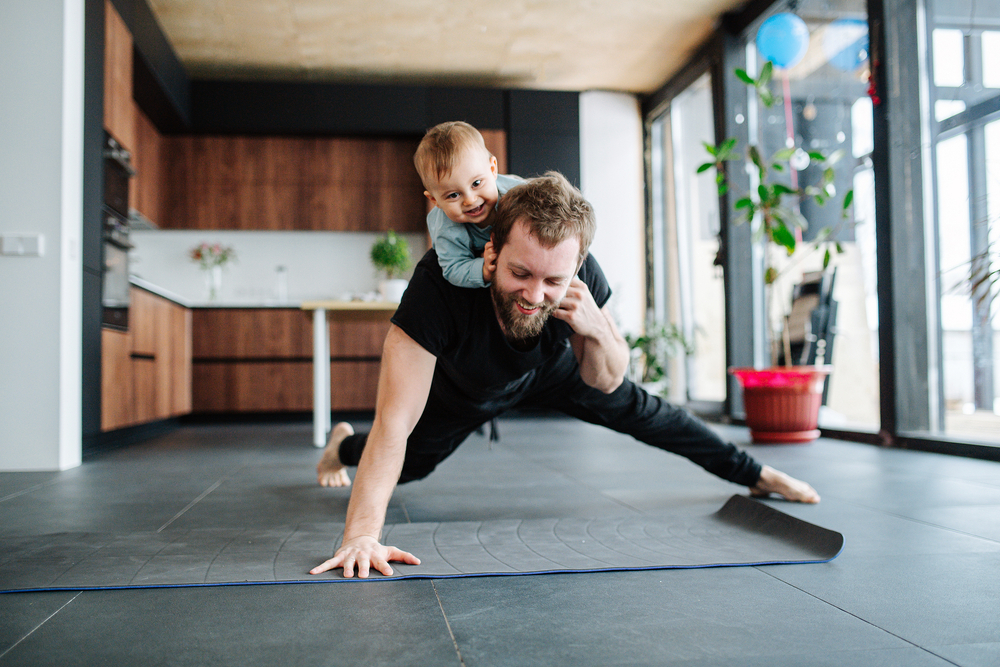The Physical Aspect of Recovery
Recovery from the devastating effects of alcohol and drug abuse needs a healthy balance of mind, body and spirit. There are addiction programs worldwide that promote spiritual development and a wide variety of counseling approaches. As treatment facilities have evolved over the years, some have incorporated exercise and fitness programs within their recovery programs. This is just another tool of many that can be added to your toolbox, which helps you break the cycle of addiction.
At Augustine Recovery, we’ve found that fitness is an invaluable resource for people in recovery. Alcohol and drug use can severely impact your physical health; as you heal from a substance use disorder, it’s important to strengthen and restore your body to a state of well-being.
Our staff is committed to your overall health, which includes…
- Personal fitness training 5 days per week
- Surfing
- Hiking
- Softball
- Fishing
- Other outdoor activities.
Many of these modalities are wonderful and needed, but you probably have several questions about physical fitness as a treatment for addiction. What do we know about the body and the physical malady brought on by the illness? If we continue to be physically unhealthy, does it help or hinder other areas of our recovery? Why is the physical component of recovery an important and needed aspect?
Fitness Benefits Your Health & Mood
Physical fitness and exercise can…
- Improve mood
- Reduce depression, stress and anxiety
- Help you get better sleep
- Build confidence.
Feelings of frustration, anger and other emotions are common in life and recovery. Coping mechanisms for handling these emotions have been dulled or never developed during the alcohol and/or drug abuse. As we learn and develop these coping skills, exercise can be a wonderful release of unwanted thoughts and impulses.
Rebuilding Neural Pathways Over Time
When in early recovery or just beginning the treatment process, our minds and bodies continue to experience cravings that gave us that feeling of euphoria. The rebuilding of the pathways in the brain takes time; in fact, it is often said that a person’s best friend in treatment is time.
Exercise can help stimulate the chemicals in the brain and be a healthy replacement to boost the effects of other therapies. Fitness cannot be a fix-all, cure-all in itself, but when coupled with an appropriate treatment protocol, it can strengthen our recovery: both physically and mentally.
Meditation & Mindfulness
Many use their fitness time for meditation, which can bring them to a whole new level in their recovery. It can free the mind and assist in being in the moment which lends to the “One Day at A Time” development. Getting active can help with cravings and post-acute withdrawal while also healing the body from the devastating physical effects of abuse. Remember, any exercise is better than none at all, so feel free to experiment with lower-impact exercises like yoga and walking meditations.
Work Out to Reduce Your Screen Time
How many hours do we honestly spend with a screen in front of our face daily? Most of us have had a significant increase for the last year due to the COVID-19 pandemic. Psychological research has shown that spending time outside in nature is linked to a host of benefits, including improved attention, lower stress, better mood, reduced risk of psychiatric disorders and even upticks in empathy and cooperation.
The healing powers of Mother Nature, even in urban settings, can lend to better mental health. Whether it is birds singing, crickets chirping, waves crashing or a gentle breeze blowing, each of these has a profound effect on our mood. Spending time in nature can help with both cognitive and emotional well-being.
Regardless of the amount of time spent outdoors, every little experience can be a great benefit to us and our mental health. Getting a little exercise outdoors each week can free our minds and reduce stress. Regardless of how your fitness goals start, it is a great way to build confidence and self-esteem. So, let’s get out and start walking, swimming, gardening, yoga, hiking, surfing, running, paddleboarding or anything that you enjoy and improves your mood.
Your Guide to Personal Fitness, Improved Well-Being & Lasting Change
Set reasonable expectations. Don’t expect too much too quickly, as many of us have weakened our bodies during our active use of alcohol and other drugs. Just like we are told in recovery: “Progress not Perfection.” Start with walking and increase the distance as you are able.
Get started with attainable goals. Commitment to our recovery is vital and commitment to our physical health can boost both. Creating some achievable goals, track your progress, share your goals with a friend or maybe even have another friend in recovery join you in a buddy system for a little of that accountability.
Start small and enjoy the ride. Don’t make physical activity a chore, and don’t let it be overwhelming. Just make some small adjustments in your life for short workouts and add them to your daily gratitude list if you wish.
Train for Lifelong Recovery
Replacing some of our old unhealthy behaviors with some physical exercise is a common method for handling life stressors and benefit in leading to long-term recovery. Read more about our approach to fitness at Augustine Recovery by clicking here: Fitness at Augustine Recovery.
Feel free to contact me if I can be of further assistance:
David A. Cunningham LADACII, NCACI, ICADC, QCS
Director of Development





